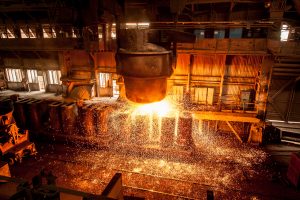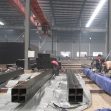Innovative Technologies Shaping the Future of Steel Pipe Industry
The steel pipe industry, a cornerstone of modern infrastructure and construction, is on the cusp of significant transformation. Innovative technologies are not just enhancing the efficiency of black iron steel pipe manufacturing but are also expanding the range of applications these pipes can serve. Here’s a look at how cutting-edge advancements is shaping the future of this essential industry.
Advancements in Material Science
The development of new steel alloys with improved strength-to-weight ratios and corrosion resistance is a game-changer. These advanced materials allow for the creation of lighter and stronger steel pipes that can withstand harsher environments and last longer without maintenance. Additionally, the research into high-strength, low-alloy (HSLA) steels is paving the way for pipes with enhanced mechanical properties and reduced material use, which is a win for both performance and sustainability.
Laser Welding Technology
Laser welding is an emerging technology that offers superior precision and quality in the joining of steel pipe components. Unlike traditional welding methods, laser welding produces minimal heat-affected zones and distortion, resulting in a stronger and more uniform weld. This technology is particularly beneficial for the production of high-grade steel pipes where the quality of the seam is paramount.
3D Printing and Additive Manufacturing
The application of 3D printing in the steel industry is still in its infancy but holds tremendous potential for metal pipe. Additive manufacturing techniques can be used to create complex geometries and customized pipe components that are difficult or uneconomical to produce using traditional methods. As the technology matures, it could revolutionize the way steel pipes are designed and manufactured, offering greater flexibility and reducing waste.

Digital Twin Technology
Digital twins—virtual replicas of physical systems—are becoming increasingly prevalent in the steel pipe industry. These digital models allow manufacturers to simulate the performance of steel pipes under various conditions, optimize designs, and predict maintenance needs before physical production. This technology enhances the efficiency of the production process and enables the creation of carbon steel pipe that are better adapted to specific applications.
Sustainable Manufacturing Processes
In response to growing environmental concerns, the steel pipe industry is adopting more sustainable manufacturing practices. Innovations such as electric arc furnaces (EAFs) for recycling scrap steel, the use of renewable energy sources in production, and the implementation of closed-loop water systems are reducing the carbon footprint and resource consumption of steel pipe manufacturing.
Artificial Intelligence and Machine Learning
AI and machine learning are being utilized to optimize production processes of Gi square steel pipe, from predicting material properties to automating quality control. These technologies can analyze vast amounts of data to identify patterns and make recommendations for process improvements, driving up efficiency and reducing costs.
Tel: +86 18202256900 Email: steel@fwssteel.com










